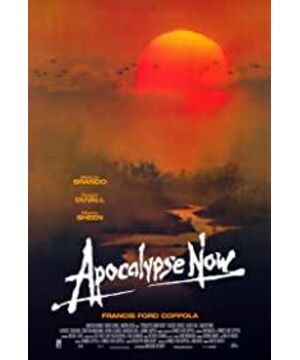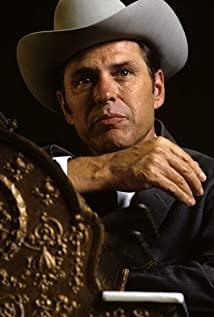This article is from "Simulations and Simulacra", translated by Hong Ling, and the difference between the mainland and Taiwan translations has been slightly changed.
Like the Americans who made war, Coppola made Apocalypse Now, with the same irregularity, the same excess of meaning, the same hideous qualities, and the same success. The war is seen as a "defense," as a technological and psychedelic fantasy, as a chain of special effects. The war was filmed even before it was made into a movie—and in its technological testing, the war canceled itself out. Because of this, the United States is such a certain testing ground, such a vast territory, to test their armaments, their methods, and their powers. That's all Coppola was doing - testing the power of the film to intervene, testing the impact of the film, and it has become an infinite mechanism for special effects. In that regard, the film is really the war extended by other means, the monument that defeated the war, and its deification. Movies become wars, and wars become movies; the two collude with each other through the massive bleed into technology together. The real war was operated by Coppola and Westmoreland. They didn't count the irony inspired by rebuilding rainforests and Filipino villages into what was then Vietnam's fiery inferno -- through the lens of cinema, the audience could revisit everything. And, to visit from the very beginning, the Vulcan joy of making the movie, the joy of sacrifice that cost millions of dollars, the joy of cataclysm so finely crafted, the variety of malevolent adventures, and the innocence that this film created. Paranoid. From the outset, it was seen as a historic global event, in which, in the minds of its creators, the war had no meaning other than to shape it into a movie—if not, A war would never exist. And, for us, it is necessary to believe in this. This Vietnam War — its own war — probably never happened. It is a fantasy, a baroque dream formed by bamboo forests and tropical tropics, it is a psychedelic dream, whether it is winning or losing or policy, it does not matter. However, the sacrifice and excess of a certain power system has long made itself into a developing film. It might just be waiting to be made into a super-movie, complete with the collective special effects of this war. There is no distance between the film and the images it reproduces, no critical consciousness, and no conscious awareness of the connection to the war. In a way, that's the brutal side of the movie - it doesn't stink with the moralistic psychology of war. Of course, Coppola could emerge from a helicopter wearing a funny hat, as a Wagner opera The soundtrack to the bombing of Vietnamese villages. These are not critical symbols with a cold distance, they have long since melted into it and become part of the special effects, and he himself made the film with a similar tone - with a similar retrogressive paranoia, the same Symbolless ecstasy, with the same clowning excess effect. However, it's the kind of stuff that hits us hard. Right here, it's horrifying and confusing, how could there be such horror? (Not the war itself. Strictly speaking, the movie.) Here, however, there is no answer, no enlightenment, and we can even rejoice at this hideous ruse (singing and dancing with Wagner ). But we can always know that it's not a dirty thing, it's not a value trial, just to tell you that this movie and the Vietnam War are different clothes cut from the same fabric. There is nothing to divide their lineages, this movie is a certain part of the war itself. If the U.S. lost the real Vietnam War, it clearly won the movie war. Apocalypse Now is a global victory. The power of imagery is enough to rival or even surpass the complexity of industry or the military, and it is beyond the attributes of the Pentagon and the government. And, all of a sudden, the movie isn't without stakes. It speculatively (not even entirely speculative, since the film is a facet of a war that has no end) exposes that, in this war, the things that go into madness are politically an irrational thing. The U.S. and Vietnam have long since reconciled, just after the goodwill of the U.S. financial aid, as if they had wiped out the woods and towns, as if they were making this movie. We don't know anything - neither the war, nor the movie (at least the latter) - if we don't grasp it, the lack of distinction is no longer ideological or moral, nor Then there is the struggle between the holy and the evil, but the reversal of destruction and production. It's something that appears in its revolution's demise, in the metabolism of all technology, in the midst of bombs in a film roll... How could there be such horror? (Not the war itself. Strictly speaking, the movie.) Here, however, there is no answer, no enlightenment, and we can even rejoice at this hideous ruse (singing and dancing with Wagner ). But we can always know that it's not a dirty thing, it's not a value trial, just to tell you that this movie and the Vietnam War are different clothes cut from the same fabric. There is nothing to divide their lineages, this movie is a certain part of the war itself. If the U.S. lost the real Vietnam War, it clearly won the movie war. Apocalypse Now is a global victory. The power of imagery is enough to rival or even surpass the complexity of industry or the military, and it is beyond the attributes of the Pentagon and the government. And, all of a sudden, the movie isn't without stakes. It speculatively (not even entirely speculative, since the film is a facet of a war that has no end) exposes that, in this war, the things that go into madness are politically an irrational thing. The U.S. and Vietnam have long since reconciled, just after the goodwill of the U.S. financial aid, as if they had wiped out the woods and towns, as if they were making this movie. We don't know anything - neither the war, nor the movie (at least the latter) - if we don't grasp it, the lack of distinction is no longer ideological or moral, nor Then there is the struggle between the holy and the evil, but the reversal of destruction and production. It's something that appears in its revolution's demise, in the metabolism of all technology, in the midst of bombs in a film roll... How could there be such horror? (Not the war itself. Strictly speaking, the movie.) Here, however, there is no answer, no enlightenment, and we can even rejoice in this hideous trick (singing and dancing with Wagner). ). But we can always know that it's not a dirty thing, it's not a value trial, just to tell you that this movie and the Vietnam War are different clothes cut from the same fabric. There is nothing to divide their lineages, this movie is a certain part of the war itself. If the U.S. lost the real Vietnam War, it clearly won the movie war. Apocalypse Now is a global victory. The power of imagery is enough to rival or even surpass the complexity of industry or the military, and it is beyond the attributes of the Pentagon and the government. And, all of a sudden, the movie isn't without stakes. It speculatively (not even entirely speculative, since the film is a facet of a war that has no end) exposes that, in this war, the things that go into madness are politically an irrational thing. The U.S. and Vietnam have long since reconciled, just after the goodwill of the U.S. financial aid, as if they had wiped out the woods and towns, as if they were making this movie. We don't know anything - neither the war, nor the movie (at least the latter) - if we don't grasp it, the lack of distinction is no longer ideological or moral, nor Then there is the struggle between the holy and the evil, but the reversal of destruction and production. It's something that appears in its revolution's demise, in the metabolism of all technology, in the midst of bombs in a film roll... Of course, the film is not without stakes. It speculatively (not even entirely speculative, since the film is a facet of a war that has no end) exposes that, in this war, the things that go into madness are politically an irrational thing. The U.S. and Vietnam have long since reconciled, just after the goodwill of the U.S. financial aid, as if they had wiped out the woods and towns, as if they were making this movie. We don't know anything - neither the war, nor the movie (at least the latter) - if we don't grasp it, the lack of distinction is no longer ideological or moral, nor Then there is the struggle between the holy and the evil, but the reversal of destruction and production. It's something that appears in its revolution's demise, in the metabolism of all technology, in the midst of bombs in a film roll... Of course, the film is not without stakes. It speculatively (not even entirely speculative, since the film is a facet of a war that has no end) exposes that, in this war, the things that go into madness are politically an irrational thing. The U.S. and Vietnam have long since reconciled, just after the goodwill of the U.S. financial aid, as if they had wiped out the woods and towns, as if they were making this movie. We don't know anything - neither the war, nor the movie (at least the latter) - if we don't grasp it, the lack of distinction is no longer ideological or moral, nor Then there is the struggle between the holy and the evil, but the reversal of destruction and production. It's something that appears in its revolution's demise, in the metabolism of all technology, in the midst of bombs in a film roll...
View more about Apocalypse Now reviews











